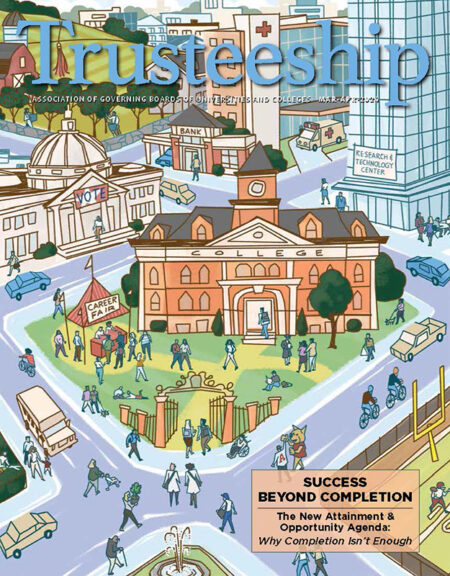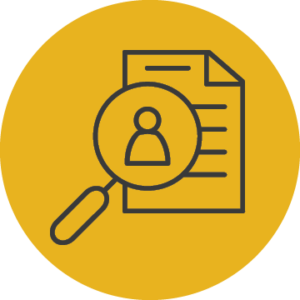
Bill Pink, PhD, is the nineteenth president of Ferris State University, and the first African American president in its nearly 140-year history. Dr. Pink previously served as president of Grand Rapids Community College and vice president for academic affairs at Oklahoma State University’s Oklahoma City Campus. He earned his doctorate in Instructional Leadership and Academic Curriculum from the University of Oklahoma, master’s degree from the University of Central Oklahoma, and bachelor’s degree from Oklahoma Christian University.
Q: In reflecting on your first year as president of Ferris State University, you mentioned the importance of student opportunities, workforce development, and partnerships. How are the programmatic offerings strengthening opportunities for students and economic development for the region and state?
We are proud that 92 percent of our graduates stay here in Michigan to start a career and raise their families. We have a beautiful state that people want to live in, and we are preparing students to be able to keep their skillsets in Michigan.
Our graduates have in-demand skills that lead to rewarding careers. We can only achieve that by working closely with our industry partners. Teaching skills that were relevant ten years ago doesn’t help students or employers. So, we develop partnerships across industries. We know what is needed today and what is expected for tomorrow.
We are also a state and national leader in many fields. Our Michigan College of Optometry and PGA Golf Course Management Programs are the only such programs in the state. We are one of just three universities in the nation offering bachelor’s degrees in artificial intelligence. Our College of Pharmacy started in the late 1800s and is highly respected. I love seeing our construction students wearing hard hats at commencement, as they almost always have jobs lined up once they cross the stage. We have many programs that grow and thrive because of our partnerships with employers and our alumni working in a range of fields.
Q: Tell us about the Ferris Equity Initiative and your commitment to student success. What might others learn from your initiative?
Woodbridge N. Ferris, our founder, said, “My plea in Michigan—and it will be my plea to the last breath I draw, and the last word I speak—is education for all children, all men, and all women of Michigan, all the people in all our states all the time.” From the very inception of our institution, our mission has been to help all people get the education they need to be successful.
To improve access we’ve created Student Success Hubs across our state. Not everyone can come to our Big Rapids campus. There are many students working and raising families, all of whom are looking to advance their careers and improve their quality of life.
Our university also partnered with EAB to create the Ferris Equity Initiative. This effort includes Navigate, EAB’s Student Success Management System, which brings together students, administrators, advisors, faculty, and other staff to support students holistically throughout the college journey. This is more than software. It is a cohesive equity plan that provides research-backed best practices, policies, and technology proven to reduce and eliminate equity gaps. For our students, that means reaching their goals in less time, for less money, and achieving better career outcomes.
This is not something you do once. This work has to be ongoing, changing to meet the needs of the students who are also changing.
Q: You have extensive experience as a board member with nonprofit, corporate, and higher education organizations. How has this experience informed your presidency and relationship with your board?
I am fortunate to have been asked to serve on a variety of boards, including those of the Higher Learning Commission, American Council on Education, Corewell Health West Michigan, and Michigan Economic Development Corporation.
I look to learn things from my board work that will assist me as president at Ferris State. Involvement with the economic development organizations helps me stay connected with the industries in the region and the state. Ferris State has excellent programs preparing students for real-life careers. To best prepare our students, we need to know what is coming.
I’m fortunate that our trustees, who are leaders in their own fields, recognize the benefits of this involvement and are supportive. As a president who serves a board of trustees, I have more empathy for the organizational leaders of the boards that I serve on. I find great benefit in having both perspectives.
—Merrill P. Schwartz, PhD, Guest Editor



